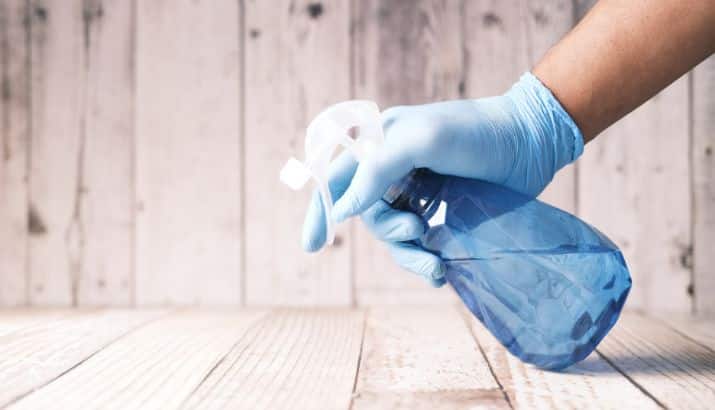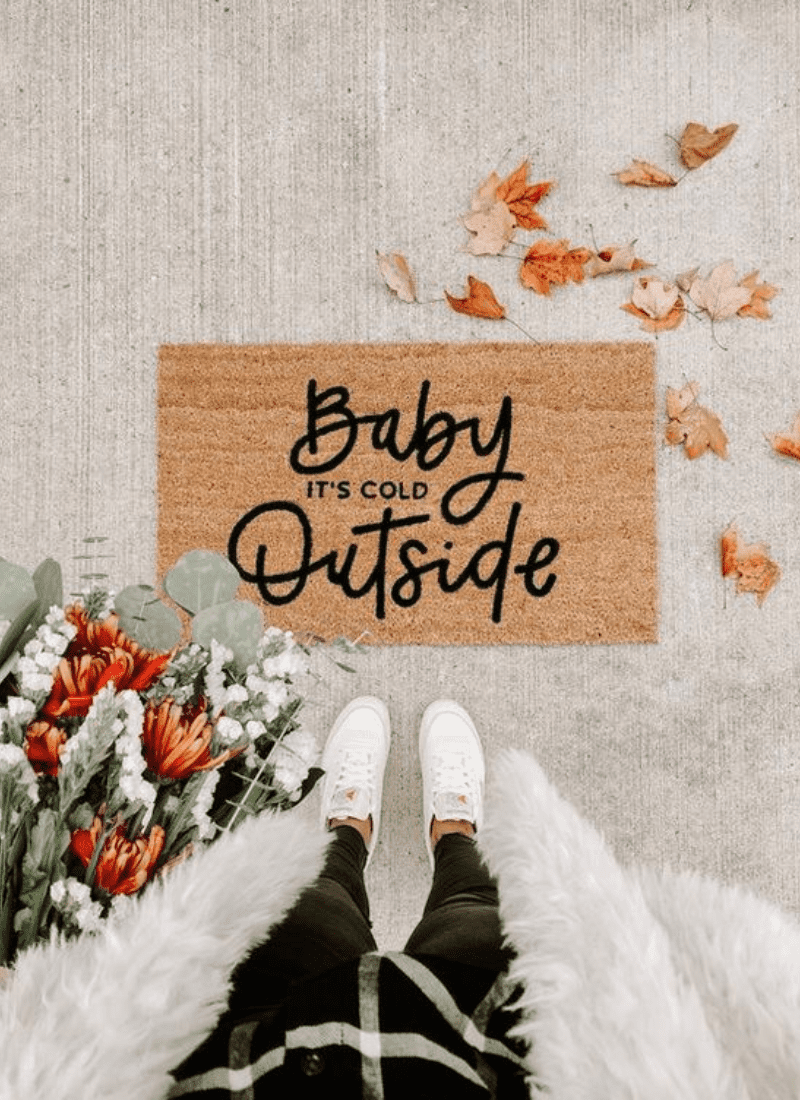
Cleaning products are a staple in every household, helping to maintain a clean and healthy environment. However, it’s not uncommon to have an assortment of cleaning products sitting in the back of your cabinet, waiting to be used. As time passes, you may wonder: do cleaning products expire if not opened? Understanding the shelf life of cleaning supplies is essential for maintaining their effectiveness and ensuring your safety.
Cleaning products do expire even if they’re not opened. The shelf life varies depending on the type of product and its ingredients. Air, light, and heat exposure can also affect their effectiveness. Proper storage and understanding the shelf life of each product are essential for maintaining their efficacy and ensuring your safety.
Various factors can affect the shelf life of cleaning products, such as exposure to air, light, and heat and the type of ingredients they contain. It’s crucial to understand the shelf life of different cleaning products to avoid using expired ones that may be less effective or harmful. This article will explore the science behind cleaning product shelf life and how to store them correctly to maximize their lifespan.
Types of Cleaning Products and Their Shelf Life
Cleaning products come in various forms, each with a shelf life. Some cleaning products may last longer than others, depending on their formulation and ingredients. Here are some common types of cleaning products and their approximate shelf life:
- All-purpose cleaners – 2-3 years
- Glass cleaners – 2 years
- Disinfectants – 1 year
- Dishwashing detergent – 1-2 years
- Laundry detergent – 6 months to 1 year
- Floor cleaners – 2 years
- Furniture polish – 2 years
- Carpet cleaners – 1-2 years
- Stain removers – 1-2 years
It’s essential to check the expiration dates of cleaning products before using them to ensure their effectiveness and safety.
Related posts you may like: What Do You Use To Wipe Up Your Bathroom Counter And Keep It Dry?
Factors Affecting Cleaning Product Shelf Life
The shelf life of cleaning products can be affected by various factors. Here are some common factors that can affect the shelf life of cleaning products:
- Exposure to air: Exposure to air can cause some cleaning products to lose their effectiveness or degrade over time.
- Exposure to light: Some cleaning products are sensitive to light and can break down or lose effectiveness when exposed to sunlight or other light sources.
- Heat exposure can cause some cleaning products to evaporate or break down, reducing effectiveness or potential safety hazards.
- Type of ingredients: The ingredients used in cleaning products can affect their shelf life. Some ingredients are more stable than others and can last longer.
- Storage conditions: Proper storage conditions, such as storing in a cool, dry place away from sunlight and heat sources, can help extend the shelf life of cleaning products.
Understanding these factors is crucial for maintaining the effectiveness and safety of cleaning products.
Risks of Using Expired Cleaning Products
Using expired cleaning products can pose various risks to your health and the environment. Here are some potential risks of using expired cleaning products:
- Reduced effectiveness: Expired cleaning products may not work as well as they should, leading to a waste of time, effort, and money.
- Harmful chemicals: Some cleaning products contain harsh chemicals that can break down over time, releasing harmful fumes or substances that can be hazardous to your health.
- Skin irritation: Expired cleaning products may contain ingredients that can irritate your skin, leading to redness, itching, or other skin problems.
- Environmental impact: Using expired cleaning products can harm the environment by introducing harmful chemicals to aquatic life or soil quality.
To avoid these risks, it’s essential to check the expiration dates of cleaning products and dispose of expired products safely. It’s also important to store cleaning products properly to ensure their effectiveness and safety.
Related posts you may like: How to Remove Pledge From Wood Furniture? Explained
Proper Storage of Cleaning Products
Proper storage of cleaning products is essential for maintaining their effectiveness and safety. Here are some tips for storing cleaning products correctly:
- Read the label: Always read the label on the cleaning product for specific storage instructions.
- Store in a cool, dry place: Store cleaning products in a cool, dry place away from sunlight and heat sources to prevent evaporation or degradation.
- Keep out of reach of children and pets: Store cleaning products in a place that is out of reach to prevent accidental ingestion or exposure.
- Do not mix products: Do not mix different cleaning products, as they can create harmful fumes or reactions.
- Keep containers closed tightly: Make sure the containers are closed tightly to prevent exposure to air, which can reduce the effectiveness or cause evaporation.
- Use original containers: Store cleaning products in their original containers to prevent confusion and ensure proper labeling.
Proper storage of cleaning products is crucial for maintaining their effectiveness and safety. By following these tips, you can ensure that your cleaning products are in good condition when needed.
How to Tell if Your Cleaning Product Has Expired
It’s important to check the expiration dates of cleaning products before using them to ensure their effectiveness and safety. Here are some ways to tell if your cleaning product has expired:
- Check the label: Look for an expiration date or a “use by” date. If the date has passed, the product may have expired.
- Look for changes in color or consistency: If the product has changed color or consistency or has a strange odor, it may have expired or degraded over time.
- Test the product: If you’re unsure whether a cleaning product has expired, test it on a small, inconspicuous area to see if it works as expected.
- Check for mold or bacterial growth: If you notice mold or bacterial growth in the product, it’s likely expired.
If you suspect your cleaning product has expired, it’s best to dispose of it properly and replace it with a new one. Expired cleaning products can lead to reduced effectiveness or potential safety hazards.
Related posts you may like: Reasons Some People Dislike Microfiber Sheets? (& Should You)
Disposing of Expired Cleaning Products Safely
Disposing of expired cleaning products safely is crucial for preventing environmental harm and ensuring safety. Here are some tips for disposing of expired cleaning products safely:
- Read the label: Check the label for any specific disposal instructions. Some products may need to be disposed of in a certain way.
- Follow local regulations: Follow any local regulations regarding hazardous waste disposal.
- Do not pour down the drain: Do not pour cleaning products down the drain or flush them down the toilet, as they can contaminate water sources and harm aquatic life.
- Do not mix with other products: Do not mix cleaning products with other products, as they can create harmful fumes or reactions.
- Seal tightly: Make sure the container is sealed tightly before disposing.
- Dispose of at hazardous waste facility: Take expired cleaning products to a hazardous waste facility for proper disposal.
Following these tips, you can safely dispose of expired cleaning products and help protect the environment and your health.
Eco-Friendly Cleaning Products and Their Shelf Life
Eco-friendly cleaning products are becoming increasingly popular as people seek more sustainable and environmentally friendly alternatives. Like traditional cleaning products, eco-friendly ones also have a limited shelf life. Here are some things to keep in mind regarding the shelf life of eco-friendly cleaning products:
- Ingredients: Eco-friendly cleaning products often use natural ingredients that can have a shorter shelf life than synthetic ones. It’s important to check the label for specific storage instructions and expiration dates.
- Packaging: The packaging used for eco-friendly cleaning products can affect their shelf life. For example, products in clear bottles may be more susceptible to degradation due to exposure to light.
- Storage: Proper storage is crucial for maintaining the effectiveness and safety of eco-friendly cleaning products. Store them in a cool, dry place away from sunlight and heat sources.
- Expiration dates: Check the expiration dates on the labels of eco-friendly cleaning products and dispose of them properly when they expire.
By following these tips, you can ensure that your eco-friendly cleaning products are effective and safe. Using expired eco-friendly cleaning products can lead to reduced effectiveness or even potential safety hazards, just like traditional cleaning products.
Related posts you may like: How To Remove A Liquid Bandage From Furniture? (Explained)
The Importance of Understanding Cleaning Product Shelf Life
Understanding the shelf life of cleaning products is essential for maintaining their effectiveness and ensuring your safety. Using expired cleaning products can lead to reduced effectiveness or potential safety hazards. Here are some reasons why it’s important to understand cleaning product shelf life:
- Safety: Expired cleaning products may contain harmful chemicals or lose effectiveness, leading to potential safety hazards.
- Cost-effectiveness: Using expired cleaning products is a waste of money as they may not work as expected and may need to be replaced sooner.
- Environmental impact: Disposing expired cleaning products improperly can harm the environment by introducing harmful chemicals to soil or water sources.
- Health concerns: Using expired cleaning products can lead to skin irritation or respiratory problems, especially for people with allergies or asthma.
You can ensure their effectiveness and safety by understanding the shelf life of cleaning products and following proper storage and disposal guidelines. This can help protect your health, the environment, and your wallet.




